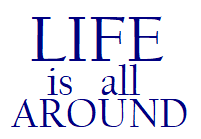Today’s world has seen a split between politics and economics. Traditionally, those in political power also controlled the economy. This is no more true today: we elect politicians but we cannot decide who is in charge of our market economy. Our economy looks like a democracy-free zone.
The invisible hand
So if we do not decide who holds the economic power, then who does? Actually, we are in some way responsible for who controls our economy. But instead of casting votes, we decide to spend our money for certain products or services.
Because we prefer to buy from them, certain multinational companies have become economic powerhouses. Sometimes, their control over the economy is bigger than that of governments. Think of oil. If the two, or three biggest oil companies in the world decide to change the price of oil, the entire stock market could see drastic changes in a matter of hours.
Economists use the term “invisible hand” to describe the force that brings a balance between demand and supply in the market economy. They say that this “hand” works thanks to the self interest of every participant in the economy. History has shown that this new economic system has brought or at least coincided with the greatest economic growth in the history of humanity.
“Casting” our money
Behind the invisible “hand” are our choices on where to buy our goods from. If we prefer the big company over the more expensive local producer, we grant economic power to the former. Our short-term impulses make us choose the cheaper product even though we know this is not in the interest of our local community.
If we had the choice to decide who controls the economy, we would most likely vote differently. However, we cannot have both low prices and a democratic system in our economy. We decided to be part of a democracy-free market economy and this has served us in many ways. You can just search how life was 200 years ago and compare it with now.
In any case, whenever we make a purchase, we also cast a vote to decide who controls our economy. The more of us prefer to buy from a certain company, the more powerful this company will be. In other words, it will exert greater influence in our economy. This is neither good nor bad on its own. It is just how the market economy works.
Becoming more conscious of your “vote”
So whenever we buy something, we also cast a vote on the future of our economy. If we prefer one future over another, then we can become more conscious of this choice that we have with every purchase. But what are the potential futures?
There can be different scenarios here but we can talk about the two extremes: a future where the economy is controlled solely by the buyers and a future where the economy is controlled by the sellers. Each future is connected to our decisions on where to buy our products from.
If we always buy from the local, often more expensive, producers, we are closer to the former scenario where buyers have the upper hand. If we prefer the cheaper alternatives of big multinational companies, then those companies will be the ones in power. It is all a matter of our choices.
Takeaway
- Whenever we make a purchase, we also cast a vote to decide who controls our economy
- Because we prefer to buy from them, certain multinational companies have become economic powerhouses
- If we prefer one economic future over another, then we can become more conscious of this choice that we have with every purchase



